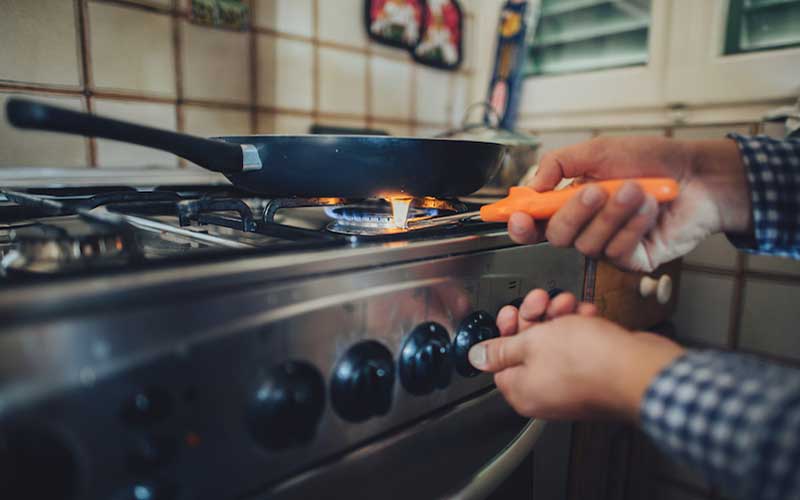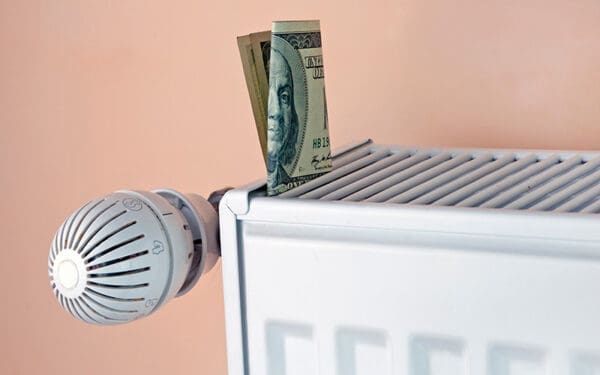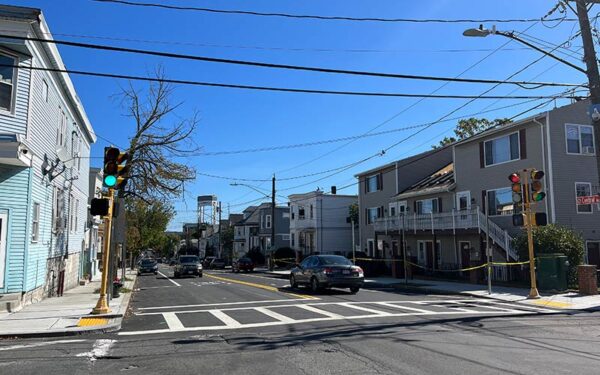
Photo Credit: Shutterstock
UPDATE: It’s the one-year anniversary of the Merrimack Valley gas explosion, and communities are still recovering from the disaster. It’s a stark reminder that we need to prioritize the health and safety of our communities, which means getting off dirty gas. Our aging gas infrastructure is expensive, leaky, and dangerous. We have cleaner, safer alternatives like electric stoves and hot water heaters ready to go. It’s time to swap out polluting gas for clean energy that doesn’t run the risk of exploding.
On the evening of September 13, I was with CLF’s Massachusetts Advisory Board and our community partners in Lawrence. We met in a beautifully restored mill building (Duck Mill at Union Crossing) to celebrate what we have accomplished in the Lawrence community, together with the City of Lawrence and two local non-profit organizations: Groundwork Lawrence and Lawrence CommunityWorks. But as we chatted about how we could collaborate even further to spur long-term revitalization of the city, explosions from natural gas pipelines rocked the area.
We’d been in the midst of a walking tour, showcasing our collaborative work to the Advisory Board, when helicopters flew overhead and we picked up the unmistakable smell of gas and smoke. Ultimately the area was evacuated, and by the end of the night we learned that multiple explosions had occurred in the nearby neighborhoods of South Lawrence, Andover, and North Andover. An 18-year old boy was killed, at least 25 others injured, and dozens of houses destroyed. If these explosions and fires had happened even a few hours later when parents and kids were home from work and school, the tragedy could have been exponentially worse.
As it was, the results were tragic. Families in the area are still recovering from the damage to their homes and to their peace of mind. It will take months to fully recover. As the weather cools and Boston prepares for winter, it’s imperative to get families back in their homes with heat, hot water, and the ability to cook a meal. And it’s critical to do so safely. (For those affected looking for information on how to cost-effectively update your home after the blast, please click this link and see below.)
The Dangers of Natural Gas: Explosions, Pollution, and More
Gas is an inherently dangerous fossil fuel, with these recent explosions being only the latest example. In the last 10 years there have been similar, though less severe, gas-related incidents in Fitchburg, Springfield, and Gloucester. While we still don’t know the exact cause of this explosion, we know volatile gas was involved and an incident like this should never, ever happen again.
But it will happen again. Why? Because our state is crisscrossed by some of the oldest gas infrastructure in the country. And at any given moment, there are thousands of gas leaks simmering under our streets. That’s thousands of miles of pipes at risk, and no uniform system for deciding how serious a leak really is. This results in accidents just waiting to happen – an unacceptable risk for the families and businesses of Massachusetts.
It’s also expensive. Gas companies charge each of us for the gas that leaks from these pipes – their pipes – which can add up to tens of millions of dollars each year. We’re also on the hook for the multi-billion dollar efforts to patch this system back together. And despite this threat to public health and the high costs to our wallets, the Trump Administration is currently threatening to weaken pipeline safety inspection requirements in populated areas like cities and suburbs.
This is all on top of the nasty pollution that natural gas spews throughout every part of its lifecycle. From the time it’s drawn from the ground via fracking to when it’s burned to heat your home or business, it’s polluting the air we breathe and the climate we depend on. Air pollution from gas has been linked to asthma, lung cancer, and heart disease. And although gas is marketed as a clean fuel, it’s up to 95 percent methane – a potent greenhouse gas that contributes to climate change. So whether it’s being used to heat our water or it’s leaking from old pipes, it’s damaging our health and our environment.
Safer Alternatives to Gas
Fortunately, there are safer alternatives. We can replace our oil and gas systems with electric heat pumps for heating and cooling, electric stoves and ovens for cooking, and electric hot water heaters for showering and washing up. Not only is electricity safer than gas, it offers environmental benefits, too.
Solar and wind energy are clean, renewable sources that can power our homes and businesses. And these clean resources are only growing in Massachusetts. For instance, the state is forging ahead with offshore wind power, and plans to buy enough energy to power up to half a million homes.
We can also be smarter about the energy we already use – installing energy efficient appliances to save both money and power. All of this culminates in making our system safer while cutting our climate-damaging emissions.
Massachusetts Needs to Step Away from Gas
Despite its current overreliance on gas, Massachusetts has long been a leader on climate change. In 2008 we passed one of the strongest climate laws on record, the Global Warming Solutions Act. And earlier this year we bolstered our Renewable Portfolio Standard, which requires power generators to decrease the amount of polluting emissions they produce each year. The Massachusetts Supreme Court has repeatedly recognized the importance of taking action on climate change.
But to continue leading on climate, Massachusetts needs to stop relying on dirty gas and demand clean, safe alternatives like electric heat pumps and energy efficient appliances. The era of gas must end. It is time for renewable energy to take hold.
(If you were affected by the gas explosions in September, Columbia Gas is offering to reimburse the costs of switching to an alternative fuel source like electricity. This means you can step away from gas by installing cleaner, electricity-based appliances. Learn more about the claims handling here.)



